About
The course teaches students comprehensive and specialised subjects informed by the empathetic analysis of contemporary scenarios by leaders and educators, enhancing students' abilities to foster healing and social change. As such, the course responds to the challenges of a diverse global community by delving deep into mindfulness, social-emotional learning and yoga as apt mechanisms of social healing and transformation.
The course is a novel and timely endeavour to empower students to enrich their pedagogical approaches, cultivate a deeper understanding of personal wellness practices, broaden their repertoire in yoga instruction, and enhance their ability to focus on transformations in the domains of education and leadership. This experiential program will inspire and facilitate an ambience that will promote positive behaviours, elevate student performance, and enrich the well-being of the entire sorority. Throughout the duration of the course, students will develop expertise in methods and pedagogical frameworks that will equip them to teach and lead in a manner that is trauma-informed, equitable and accessible. Consequently, students will develop a comprehensive understanding of the transformations that will utilise their proficiency as a healing-centred community builder.
Target Audience
Ages 19-30, 31-65
Target Group
The course is suited for individuals who desire to enhance their knowledge and deepen their understanding of transformative teaching and leadership within the field of education. It encompasses a comprehensive exploration of educational theories, innovative teaching methodologies and leadership strategies aimed at healing and social change. This course is designed to equip individuals with professional skills required for pursuing impactful careers in education and leadership roles in government and private sectors. It lays the groundwork for individuals considering advanced studies at the doctoral level in education or related fields. The target group should be prepared to pursue substantial academic studies fitting to the MQF/EQF 7 level.
Mode of attendance
Fully Online
Structure of the programme
Full Time
Up to 18 months
Part Time
Up to 5 years
Grading System
Scale: 0-100 points
Components: 60% of the mark derives from the average of the assignments, and 40% of the mark derives from the cumulative examination
Passing requirement: minimum of 60% overall
Dates of Next Intake
Rolling admission
Pass rates
2024 pass rates will be publicised in the next cycle, contingent upon ensuring sufficient student data for anonymization.
Identity Malta’s VISA requirement for third country nationals: https://www.identitymalta.com/unit/central-visa-unit/
How students have found success through Woolf
Course Structure
About
The course will equip educators with the skills and knowledge needed to create inclusive learning environments that address the diverse needs of all students. This course inspires educators to facilitate accessible learning experiences that benefit everyone in the community.
Participants will learn essential principles and innovative strategies for differentiation and scaffolding, gaining practical tools to effectively meet the varied needs of their students. Through engaging lectures, collaborative discussions, and hands-on activities, educators will explore how to design learning experiences that accommodate different learning styles, abilities, and interests. The course emphasises the importance of instructional flexibility, allowing educators to adapt content, processes, and assessments to ensure all students can succeed.
The course also provides real-world examples of differentiated instruction in various educational settings, helping educators understand its successful application. By the end, participants will have a comprehensive toolkit of strategies to make their instruction more accessible. Whether you're a classroom teacher, administrator, or support staff, this course will enhance your ability to create meaningful learning experiences that enable all students to reach their full potential.
Teachers
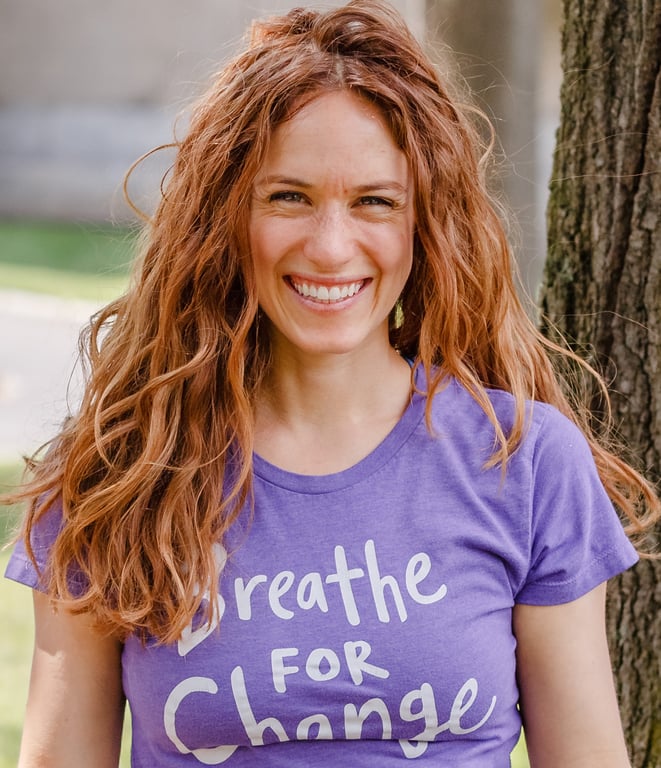

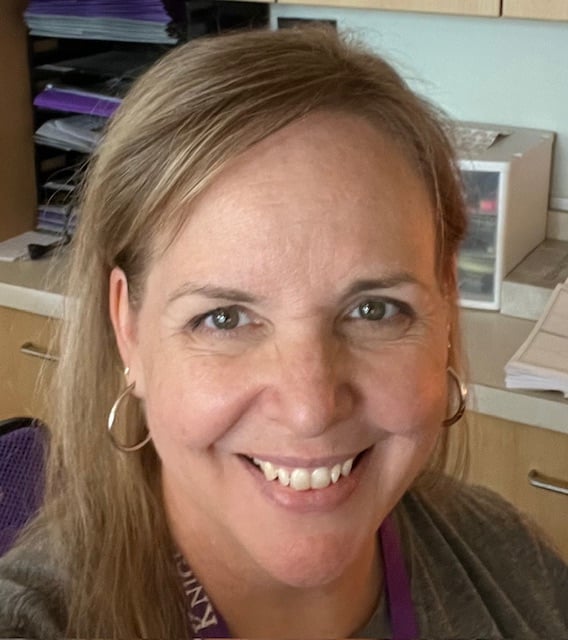
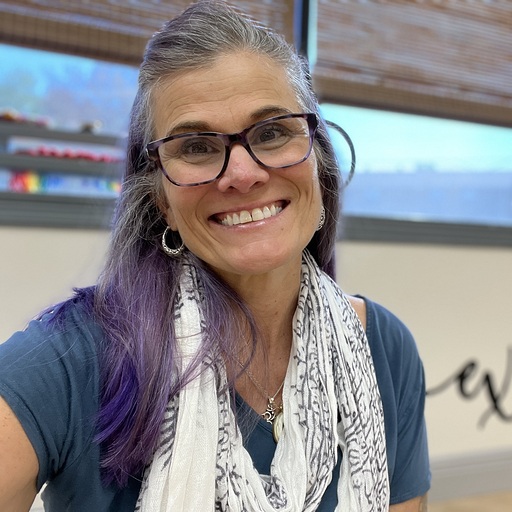

Intended learning outcomes
- Define context and learning outcomes to effectively guide teaching and student understanding.
- Demonstrate critical knowledge of conceptual, experiential, and analytical tools used to assess and engage with the study, activity, and experience of accessible teaching.
- Develop techniques to synthesise and emphasise key points for better student comprehension.
- Issues judgments based on knowledge of the rules and customs for the proper use of inclusive and accessible teaching.
- Develop critical knowledge of what accessible teaching looks like, sounds like, and feels like in action.
- Foster meaningful student connections to enhance engagement and learning through relationship-building strategies.
- Demonstrate the ability to identify and transform biases and assumptions about the students and help them be resilient, progressive and guide them towards academic success.
- Implement differentiated and scaffolded learning strategies to support individual student progress.
- Autonomously create a culture of accessibility in the teaching so that students from diverse backgrounds can be empowered.
- Apply a strengths-based approach to the teaching learning experience and contribute to transforming the society through education and redefined leadership.
- Create a comprehensive toolkit of strategies to promote accessibility, scaffolding and differentiation.
- Display the capability to gain tools to scaffold and differentiate learning to meet the needs of learners of all backgrounds, ages, and abilities
- d) Design student-centred instructional plans that cater to diverse needs, interests, and learning styles
- Demonstrate the ability to integrate accessible breathing, mindful movement, emotional awareness, and mindfulness practices into the instruction.
- Efficiently deal with and be able to facilitate accessible mind-body wellness practices to enhance educator and student well-being.
About
This course delves into the intersection of equity, inclusion, and belonging within educational settings, emphasising the latest research from cognitive psychology, sociology, and educational neuroscience. Educators will explore how diverse learners experience educational environments and how these experiences impact their academic outcomes and well-being. The course examines the neurological and psychological foundations of belonging, the cognitive effects of exclusion, and how equitable practices can enhance learning outcomes for all students.
Students will critically analyse current educational practices through the lens of equity and inclusion, focusing on the five social-emotional learning competencies: self-awareness, self-management, social awareness, relationship skills, and responsible decision-making. The course addresses implicit biases, stereotype threats, and systemic barriers that hinder learning and contribute to disparities in educational achievement.
By the end of the course, participants will gain a deep understanding of the research underpinning equity, inclusion, and belonging in education. They will also develop practical skills for fostering inclusive classroom environments, promoting a sense of belonging among diverse students, and implementing equitable assessment practices to support all learners.
Teachers





Intended learning outcomes
- Analyse the intersectionality of various identity factors (such as race, gender, socioeconomic status, and ability) and their combined impact on educational experiences and outcomes, developing strategies to address complex equity challenges.
- Demonstrate critical knowledge and understanding to be able to articulate the concept of social justice, inclusiveness, and belonging in the context of education.
- Critically assess the intersections of equity and equality, and how they affect every-day life, acknowledging the diverse needs and strengths of the student community.
- Critically understand the diverse scholarly views addressing contemporary issues related to equitable teaching and inclusiveness and how they impact social life.
- Evaluate the impacts of inclusive and exclusive educational environments on diverse learners, applying this knowledge to design more effective learning experiences.
- Display creativity and initiative to recognize the critical need to embody the 5 CASEL competencies to teach equitably.
- Monitor and review to improve the ability to regulate emotions in response to challenges put forward in the implementation of equity, inclusion, and belonging.
- Apply an in-depth domain-specific knowledge to enhance the self-awareness skills and gain tools to approach teaching equity, inclusion, and belonging more mindfully.
- Show creativity, compassion and understanding to improve the ability to make responsible decisions and ensure diverse voices are heard and accepted.
- Efficiently deal with issues that jeopardise the implementation of equitable teaching and deepen the social awareness skills to be able to scaffold teaching for diverse learners.
- Apply a professional and scholarly approach to strengthen the personal and professional relationships, and support others in doing the same.
- Design and implement strategies to foster a sense of belonging among diverse student groups, drawing on recent research to create supportive classroom and school climates.
About
The Trauma-Informed Teaching course is a transformative journey that will prepare and empower the learner to teach through a trauma-informed lens. This course guides the student to embody and implement trauma-informed teaching principles across diverse education and wellness contexts. By the end of the course, the student will feel confident integrating trauma-sensitive mind-body wellness practices into every facet of teaching and leadership.
Trauma-informed teaching is not just about responding to explicit trauma but also creating an environment that supports the well-being of all students. It involves understanding the prevalence and effects of trauma, adapting teaching strategies, and fostering a compassionate and empathetic approach in the educational setting. This approach acknowledges that students may bring various experiences and challenges to the learning environment, and it seeks to create an atmosphere that promotes healing, growth, and academic success.
It is to be recognised that every leader holding space for others is, in essence, an educator. Whether one finds oneself in a classroom, school, or another community setting, embracing the principles of trauma-informed teaching will equip the student to facilitate healing and cultivate a sense of inclusion and belonging within the community.
Teachers




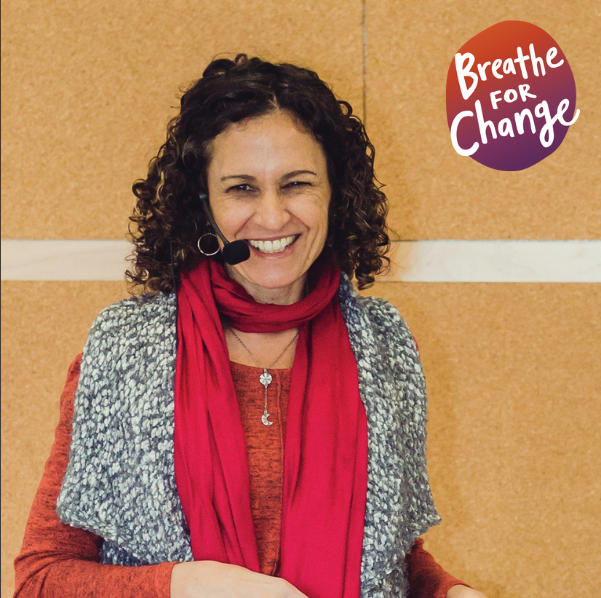
Intended learning outcomes
- Demonstrate critical knowledge of conceptual, experiential, and analytical tools used to assess and engage with the study, activity, and experience of trauma and its boundaries with the pedagogical framework.
- Develop critical understanding of the different types of traumas, and how they affect the body, mind, and learning.
- Evaluate select topics for the advanced study of how stress and trauma impact teaching and learning.
- Apply in-depth domain-specific knowledge and understanding to be able to articulate what trauma-informed teaching looks like, sounds like, and feels like, and be able to teach through this lens.
- Employ the standard principles of trauma-informed teaching and embody these principles in the facilitation process.
- Autonomously gather material and articulate ideas into a coherent manner to improve the ability to scaffold and differentiate learning across different teaching contexts.
- Apply a professional and scholarly approach to research problems pertaining to reducing educator and student stress.
- Display the creativity and initiative to integrate trauma-sensitive practices into the instruction and gain tools to facilitate the process.
- Demonstrate self-direction and originality in solutions to foster inclusivity and accessibility through the teaching to promote healing, growth, and academic success.
About
This is an immersive course rooted in educational sciences and research, tailored for educators eager to cultivate strong, collaborative relationships within their educational settings and the broader communities they serve. Drawing from theories of child, adult, and social learning, the course emphasises the critical role of fostering connections among students, educators, families, and community members, thereby creating a supportive network that enhances both teaching and learning.
Throughout the course, educators will explore pedagogical practices centred on relationship-building and community engagement, supported by empirical research demonstrating their positive impact on student engagement and achievement. Through interactive workshops, group discussions, and integration activities, participants will learn strategies to foster a culture of connection, vulnerability, and mutual respect in their classrooms. Key topics include the importance of trust and communication, culturally responsive teaching, and the integration of diverse perspectives into the learning process.
By the end of the course, participants will be equipped with practical tools to create nurturing and inspiring learning environments that emphasise connection and community. They will understand how to leverage community partnerships to enrich the curriculum and enhance student engagement, making this course ideal for educators dedicated to transforming their practice through the power of collaboration and community involvement.
Teachers





Intended learning outcomes
- Evaluate select topics for the advanced study of community-based pedagogical practices
- Develop a critical knowledge of trends in community-based pedagogy and practice.
- Utilise specialised knowledge of key strategies related to critically assessing the principles and impact of community-based teaching.
- Design strategic and creative responses in the search for solutions to well-defined concrete and abstract problems related to teaching.
- Apply child, adult, and social learning theories to foster community connections.
- Implement culturally responsive teaching practices that integrate diverse perspectives.
- Display creativity and equip oneself to effectively set context and give clear directions prior to facilitating community building experiences.
- Monitor and review performances to create a culture of appreciation in the teaching context through facilitating gratitude practices.
- Demonstrate transfer of theoretical and practical knowledge, in the creation of solutions for community-based teaching.
- Evaluate the impact of community-based pedagogical practices on student engagement and achievement.
- Apply community building initiatives to inspire connections and generate collective tendencies of individual minds to build a communal identity.
- Foster a classroom culture of connection, vulnerability, and mutual respect.
- Communicate ideas in a well-structured, cohort format, following appropriate conventions.
- Create an intention plan as to how to cultivate human connection in the community.
- Demonstrate the ability to be able to lead a wide range of community-based pedagogical practices for the entire class or community.
- Evaluate their own learning and identify learning deficits to address in further study and practice of community-based teaching.
- Design learning experiences that prioritise relationship-building and community engagement.
About
This course equips educators with essential knowledge and skills to support the well-being and performance of both students and educators. Participants will explore the prevalence and impact of mental health issues, such as anxiety, depression, and behavioural disorders, among school-aged children, adolescents, and educators. The course provides a comprehensive understanding of how mental health influences cognitive functions, social interactions, and overall academic performance by delving into the latest research on brain development, stress responses, and the connection between mental health and learning.
Throughout the course, participants will examine the progression of mental health from personal well-being to interpersonal and collective well-being. This progression highlights the multifaceted nature of mental health and its effects on individual and group dynamics in educational settings. The course addresses contemporary challenges, including the influence of social media, the integration of new technologies in the classroom, and the rise of prescribed medications, providing educators with insights into how these factors shape mental health.
Participants will also explore culturally responsive approaches to mental health support, ensuring that the diverse needs of students and educators are met with appropriate and effective care. By the end of the course, educators will be empowered to lead mental health initiatives within their educational communities, fostering a p
Teachers





Intended learning outcomes
- Evaluate the neurobiological and psychological factors influencing mental health in educational settings, applying this knowledge to support student well-being and academic success.
- Develop a specialised knowledge of the relation between mental health issues and initiatives and teaching, in a way that critically interrogates the boundaries that can merge one with the other.
- Analyse the prevalence and impact of mental health issues among school-aged children and adolescents, demonstrating an understanding of how these challenges affect learning and development.
- Acquire knowledge of select topics for the advanced management of mental health issues.
- Display a critical knowledge of established theories and tools used to complete comparative and comparativist studies within the areas of mental health issues and wellness practices and how they can transform education and leadership.
- Demonstrate critical knowledge in the field of study that is based on an acumen and understanding of wellness practices that rejuvenate, restore and heal mental health issues.
- Develop skills in early identification of mental health concerns, demonstrating the ability to recognize warning signs and make appropriate referrals to mental health professionals.
- Enhance well-being in interpersonal relationships through cultivating empathy and improving communication.
- Propose appropriate solutions to complex and changing problems pertaining to mental health issues for the benefit of the community.
- Apply and recognize the power and experience the benefits of self-care to enhance personal well-being through engaging in mind-body wellness practices to handle mental health issues and shape well rounded personalities.
- Enhance mental health in one’s personal life, teaching and leadership by putting mind-body wellness practices into action.
- Demonstrates transfer of theoretical and practical knowledge in the creation of solutions for mental health issues and practice and implement them.
- Possess the learning skills to design tools to foster healing through facilitation with a degree of autonomy.
- Develop and implement strategies to support educator and staff mental health, recognizing the interconnection between teacher well-being and student outcomes.
- Create culturally responsive and inclusive mental health support systems that address the needs of diverse student populations.
- Create a vision for the positive change that one wishes to foster in the community.
About
Mindful Classroom Management offers educators a comprehensive system of support designed to establish an engaging, interconnected, and inspiring learning space for every student. Utilizing the THRIVE Method, educators may become leaders in their classrooms and forge environments that encourage positive behaviours, elevate student achievements, and enrich the overall well-being of the entire school community.
The THRIVE Method consists of 6 steps educators can easily implement to foster a positive school culture and climate. The 6 steps to THRIVE include:
Teach Expectations
Honor Experiences
Respond Mindfully
Identify Opportunities
Validate Progress
Empower Transformation
Teachers
Intended learning outcomes
- Develop strategic and creative responses in the search for solutions to well-defined concrete and abstract problems which will reignite students’ purpose and passion for learning.
- Demonstrate critical knowledge of conceptual, experiential, and analytical tools used to assess and engage with the study, activity, and experience of mindful classroom management which will increase student engagement and active participation.
- Develop a critical knowledge of the foundational structures of mindful classroom management in creating a positive and supportive learning environment.
- Evaluate one's own learning and identify the need to help educators cultivate a sense of awareness, attention, and intentionality in their interactions with students.
- Demonstrate transfer of theoretical and practical knowledge, in the creation of solutions for a thriving and consistent learning environment.
- Transmit ideas, in a well-structured and coherent way, in the classroom and community, and foster psychological and physical safety in those settings.
- Manage projects independently that help create a thriving and consistent classroom environment.
- Efficiently manage and show creativity to reduce behaviour challenges to improve student outcomes and catalyse human connection in the school community.
- Apply a professional and scholarly approach to enhance student self-awareness and self-management.
About
Discover the power of mindfulness to enhance teaching and learning within education. This immersive module guides educators in developing and sustaining a personal mindfulness practice, and equips them with skills to lead both adults and young people through transformative mindfulness and manifestation practices.
In this module, educators embark on a journey of self-awareness, starting with breath-based practices to deepen their present-moment connection. Progressing through body and emotion-focused techniques, educators cultivate resilience and emotional intelligence, while mastering thought meditation for clarity and compassion. This experience extends beyond personal well-being, empowering educators to step more into their authentic leadership and positively impact their communities.
Throughout this module, educators enhance their well-being, sustain their career, and become equipped to scaffold the mindfulness practices they learn into their teaching and leadership contexts. From a place of embodiment, educators gain the tools and confidence they need to effectively lead mindfulness-based practices in their classrooms and school communities.
Teachers
Intended learning outcomes
- Evaluate how meditation can improve focus, attention, and performance.
- Analyse diverse ideas and scholarly views on the benefits of these approaches of mindfulness and meditation and their ability to foster an environment where individuals can thrive.
- Evaluate diverse outcomes of these learning experiences and analyse their impact on the balanced development of individuals and thereby transformation of society.
- Analyze the benefits of mindfulness and meditation on self-leadership, teaching, and learning.
- Autonomously gather material and compose arguments and ideas in a coherent manner to document the tangible and powerful transformation of individuals and society.
- Demonstrate competency in observing, accepting, and modulating the breath, body, emotions, and thoughts.
- Facilitate mindfulness practices for students, teachers, and school communities.
- Create critical contextualised discussions of key issues pertaining to mindfulness and meditation as transformative experiences.
- Apply a scholarly approach to dealing with queries related to this immersive experience and assess the ideas with clarity to enable alignment with the self.
- Efficiently deal with practical issues that arise in connection with outcomes of these transformative tools and analyse their impact on society.
- Develop and sustain a personal mindfulness and meditation practice.
About
Dive into ancient wisdom traditions in this module designed for educators seeking to integrate yoga’s rich history and ethical framework into their leadership and lives. Explore the ethical principles of the Yamas and Niyamas, which provide a blueprint for conducting oneself with integrity and leading with compassion. Reflect deeply on your relationship to principles like nonviolence and kindness, discipline and commitment, acceptance, and non-attachment and non-judgment, and how they relate to your role as a teacher and leader in your community.
Discussions around cultural appropriation encourage a respectful and informed approach, emphasizing the importance of honoring the origins of wisdom traditions while making them accessible in diverse educational settings.
This module will help educators learn, grapple with, and integrate the philosophy of yoga as it relates to modern0day life and teaching. Through practical, tangible discussions with other educators, educators will bring the wisdom within these esoteric teachings to life in ways that enhance their leadership, relationships, and communities.
Teachers
Intended learning outcomes
- Develop awareness of cultural appropriation emphasising the importance of honouring its origins while ensuring accessibility in diverse educational settings.
- Demonstrate critical knowledge of conceptual, experiential, and analytical tools used to assess and engage with the study, activity, and experience of yoga.
- Demonstrate understanding of the ethical principles of wisdom traditions, including Yamas and Niyamas, and the history of yoga
- Autonomously gather material and articulate ideas and beliefs about the world and one’s role in it in a coherent manner.
- Demonstrate creativity and initiative in enhancing one’s understanding and proficiency in conveying the essence of yoga to the students.
- Embody the ethical principles of yoga in one’s life and teaching to ensure transformation in education and leadership roles.
- Develop competency in living and working in alignment with the core values and in keeping one’s passion and purpose alive.
- Apply professional and scholarly approach to gain skills in practising and teaching yoga in a culturally appreciative way.
- Create synthetic contextualised discussions of key issues related to a variety of historical trends pertaining to wisdom traditions and their application to education.
About
This course is a transformative journey that empowers and inspires the learner to seamlessly integrate inclusive chair yoga practices into daily life and teaching. Throughout this course, the student will delve into a diverse array of chair yoga movements and variations, gaining the expertise to lead accessible chair yoga classes and sequences suitable for all body types.The learner will not only feel a profound sense of well-being in his own body but also be motivated to harness the life-changing potential of yoga within the comforting embrace of his own chair.This module goes beyond traditional yoga instruction, providing the student with the tools to embody and teach chair yoga in a trauma-informed, equitable, and community-centric manner. It will help the learner to discover how to seamlessly incorporate inclusive and safe chair yoga practices into the teaching toolkit, utilising them as brain breaks, transitions, community-building activities, and relaxation practices.Whether one is guiding short mindfulness breaks or leading entire chair yoga classes for diverse audiences, one will be well-equipped.The course places a strong emphasis on the use of invitational language and the creation of inclusive environments. It will help to foster spaces that not only calm, centre, and ground oneself but also extend those benefits to all members of the community. This approach ensures that chair yoga becomes a powerful tool not just for physical health, but also for fostering connection, understanding, and a sense of belonging within the community. It will allow one to embark on a journey that transcends traditional yoga instruction and taps into the healing potential of chairyoga in a way that is both enriching and inclusive.
Teachers





Intended learning outcomes
- Critically understand the diverse views and implementation of chair yoga and learn to sequence classes that lead to the demonstrated knowledge of the varied issues relevant to the concept.
- Demonstrate a specialised knowledge of key ideas related to critical assessment and evaluation of teaching chair yoga to select audiences.
- Develop strategic and creative responses in search for solutions to well defined concrete and abstract problems related to chair yoga sequences.
- Describe foundational approach to teaching chair yoga and acquire knowledge of select topics for the advanced management of theories and practices.
- Design inclusive chair yoga classes for adults and young people of all abilities and backgrounds.
- Display creativity and initiative in carrying out the utilisation of various theories and practices related to chair yoga.
- Independently manage projects that require techniques related to the study and implementation of chair yoga in classes and the community.
- Apply an in-depth domain specific knowledge and understanding to chair yoga.
- Demonstrate self-direction in research and originality in solutions to issues related to the study and teaching of chair yoga.
- Apply a professional and scholarly approach to the understanding of key theories of chair yoga and teaching it to the community for their well-being.
- Communicate ideas in a well-structured, cohort format, following appropriate conventions.
- Solve problems and be prepared to take leadership decisions related to the methods and principles of teaching chair yoga.
About
This module equips educators to lead powerful mindful movement and chair yoga practices in their classrooms and school communities in a trauma-informed, equitable, accessible, community-based, and healing-centred way. Educators will discover the benefits of mindful movement for educators and students of all ages, and learn how the powerful practice of chair yoga can serve as a tangible tool to enhance social-emotional learning and academic outcomes in school.
During this module, educators will improve their own health and well-being by learning to move their own bodies in the chair in a way that feels safe, supportive, and healing. They will simultaneously gain skills to incorporate mindful movement practices into their classroom and community in simple, practical ways. They will learn to settle students into — and transition students between — any learning experience using the mindful practice of chair yoga. They will also feel confident drawing on movement practices in the chair as energising activities, relaxation strategies, and community building opportunities.
As a result of this experience, educators will be able to integrate a wide range of simple, tangible chair yoga practices into their instruction, staff meetings, or other school events. From seated side bends, to twists, to sun salutations, these quick practices will enhance educators’ and students’ physical, mental, and social-emotional well-being, and foster a deep sense of connection and belonging in the classroom and school community.
Teachers
Intended learning outcomes
- Identify a wide range of simple, tangible mindful movement practices that you can incorporate into your instruction, staff meetings, or other school events using the chair.
- Demonstrate critical knowledge of conceptual and experiential tools used to assess and engage with the study, activity, and experience of chair yoga.
- Differentiate between various applications of mindful movement as settle-in or relaxation practices, brain breaks, transitions, energizing activities, and community builders.
- Independently choose and critically analyse, discuss, and present the significantly beneficial aspects of chair yoga on the backdrop of relevant issues of well-being, healing and progress.
- Enhance educators’ and students’ physical, mental, and social-emotional well-being through teaching mindful movement.
- Integrate mindful movement into your instruction to foster a deep sense of connection and belonging in the classroom.
- Facilitate mindful movement in the chair in a trauma-informed, equitable, accessible, community-based, and healing-centered way.
- Develop a sustainable mindful movement practice to enhance your well-being and sustain your career.
- Equip students, staff, and families with resources and tools to utilize the powerful practice of mindful movement in their daily lives.
About
This module equips educators to design and teach trauma-informed and inclusive mind-body and wellness classes for adults and young people in their schools, districts, organizations, and communities. Educators both enhance their own well-being, and utilize mind-body wellness practices as a vehicle for healing and social change in their schools and communities.
As a result of this module, educators become experts in frameworks for teaching accessible mind-body wellness classes for adults and youth of all abilities and backgrounds. Educators learn how these practices can lead to greater resiliency, self-regulation and discipline for students and impact performance in the classroom. They also explore the impact of these inclusive practices on fostering collaboration between staff and on the health and well-being of school communities.
Teachers
Intended learning outcomes
- Synthesize methods to safely sequence yoga poses together.
- Evaluate the research-based benefits of yoga on educator and student well-being and educational outcomes.
- Analyze the function, characteristics, and variations of a wide range of yoga poses.
- Facilitate an inclusive mind-body wellness class for adults and young people using best practices.
- Apply inclusive and accessible language while teaching yoga.
- Design and co-teach a comprehensive yoga class to demonstrate advanced competency in teaching yoga.
- Implement mind-body wellness practices in schools and communities to foster collective well-being.
About
This module follows a transformational progression that empowers and equips educators to enhance their lives, teaching, and leadership:
In the first section, Transformation of Self, educators learn mind-body wellness practices and social-emotional skills to reduce stress and burnout, increase emotional intelligence and performance, and develop leadership capacity. Educators learn to prioritize their physical, mental, and social-emotional well-being, and create a vision for themselves as teachers and leaders.
In the second section, Transformation of Relationships, educators explore how to build meaningful relationships grounded in presence, compassion, resilience, and authenticity. Educators apply powerful relational frameworks like nonviolent communication and mindful listening and leverage science-backed practices to build profound connections.
In the third section, Transformation of Community, educators apply wellness practices and leadership skills to catalyze change in their schools and communities. They emerge as wellness champions and utilize social-emotional learning and wellness as vehicles for healing and social change.
Upon completion, educators gain skills to integrate their learnings and uplevel their leadership, and leave ready to inspire change and create ripple effects of well-being in their communities.
Teachers
Intended learning outcomes
- Analyze the importance of self-care and wellness as teachers and leaders
- Explain why leadership and community-building are critical to social-emotional and academic outcomes in school
- Evaluate the essential role healthy relationships play in achieving personal and professional success
- Facilitate courageous conversations around social justice
- Exhibit effective communication in all personal and professional relationships
- Demonstrate intention, creativity, and compassion across all educational and leadership contexts
- Cultivate leadership presence across diverse communities and contexts
- Reignite passion and purpose as an educator and leader
- Develop competencies in inclusive and collaborative community-building
About
This course will allow you to embark on a transformative journey , where the learner will uncover the profound impact of seamlessly integrating restoration, relaxation, and healing into daily life and teaching endeavours. The student can immerse oneself in a diverse palette of restorative wellness practices, equipping one with the expertise to skill-fully guide revitalising restorative yoga experiences tailored for individuals of all body types. One can nurture a profound sense of calm and presence in one’s mind, body, and heart, emerging from the course empowered to harness the potential of restorative yoga as a dynamic catalyst for well-being in both one’s personal life and community. Throughout this immersive experience, the learner will not only deepen one’s understanding but also acquire the knowledge and skills essential to both practice and lead rejuvenating restorative sessions across varied settings and communities. The course, meticulously designed to be trauma-informed, equitable, accessible, community-based, and healing-centred, empowers one to seamlessly integrate these principles into one’s teaching practices. Regardless of whether one is new to or experienced in restorative mind-body practices, this course is carefully crafted to elevate both one’s personal practice and teaching, propelling them to new heights.
Teachers
Intended learning outcomes
- Develop a critical knowledge and understanding of the purpose and benefits of restorative yoga practices.
- Integrate restoration, relaxation, and healing into daily life and teaching practices and ensure accessibility for all to ensure societal development.
- Critically understand, practice and teach restorative wellness practices in a trauma-informed, equitable, accessible, community-based, and healing centred way.
- Create a framework for designing restorative yoga classes tailor-made to address the requirements of individuals from varied echelons of the society and diverse backgrounds.
- Autonomously gather material and articulate ideas in a coherent manner using inclusive and accessible language while teaching restorative yoga.
- Display creativity and initiative while developing a sustainable restorative yoga practice to enhance one’s personal well-being.
- Demonstrate competency in facilitating restorative wellness practices and guide revitalising yoga experiences.
- Identify learning deficits after assessment of their learning trajectory and address them in further study and practice.
- Collaborate and teach restorative yoga for the collective well-being of the community and create solutions for problems related to existential angst.
- Communicate ideas in a well-structured, cohort format, following appropriate conventions.
About
This module approaches sequencing with the intention of creating accessible healing experiences that resonate with every student — of all backgrounds, ages, body types, experiences, and abilities. When teaching in a trauma-informed, equitable, accessible, community-based, and healing-cantered way, it is possible to create different doorways into the practice that support diverse students in experiencing resonance — and that’s what the practice of yoga is all about!
In this module, students will learn to design and sequence resonant yoga classes for people of all backgrounds, body types, identities, abilities, and experiences levels, so that everyone can access this healing practice. This module will strengthen student’s ability to effectively sequence yoga classes through the lens of the TEACH Method:
● Trauma-Informed
● Equitable
● Accessible
● Community-Based
● Healing-Centered
Through a series of teaching case studies, students will learn to sequence and teach yoga classes for every body, and be fully prepared to sequence all types of yoga classes in a way that physically, mentally, and emotionally supports the diverse audiences they teach.
Teachers
Intended learning outcomes
- Identify core sequencing principles, rules and conventions and apply these principles to designing and teaching yoga classes.
- Strengthen the ability to sequence yoga classes for all backgrounds, ages, body types, experiences, and abilities.
- Develop and understand how to design a resonant yoga class using the sequencing framework.
- Develop a consistent personal yoga practice using sequencing best practices.
- Create yoga sequences that resonate with the specific communities one is associated with or teach.
- Display creativity and initiative in carrying out the utilisation of various theories and practices related to resonant yoga classes.
- Apply theoretical and practical knowledge in the creation of solutions for problems related to teaching yoga at an advanced level.
- Communicate thoughts and ideas in a well-structured, cohort format, following appropriate conventions to share efficiently the nourishing practice of yoga with the community.
- Demonstrate competency, empathy, and responsibility in teaching yoga classes to diverse audiences.
About
The course empowers and equips educators to embody and teach social-emotional skills and mindful practices integral to the success of effective teaching and learning. This comprehensive course provides specialised training for educators inspired to develop expertise in social-emotional learning, mindfulness, and yoga in the context of education.
Through this experiential course, educators learn social-emotional learning strategies, mindfulness tools, and pedagogical practices that foster educator well-being, improve student outcomes, and transform school communities. This course is designed specifically for educators who are inspired to use these tools to improve their pedagogy and foster social change in their classrooms and communities.
Specialized Areas of Study
This innovative course equips educators with the knowledge and skills to integrate social-emotional learning, mindfulness, and yoga practices into their classrooms. Educators will explore evidence-based strategies to enhance student well-being, emotional regulation, and academic performance, and gain tools to build a more sustainable, purposeful, and enjoyable career. The course focuses on three primary areas of study: social-emotional learning, mindfulness, and yoga.
1) Social-Emotional Learning (SEL)
Educators will dive into the foundational principles of social-emotional learning, understanding its critical role in fostering a positive learning environment. They will:
● Explore the five core competencies of SEL: self-awareness, self-management, social awareness, relationship skills, and responsible decision-making. This exploration will help educators recognize how these competencies can improve their teaching shape students' interactions and emotional health.
● Learn how to create a supportive classroom environment that fosters emotional intelligence. Educators will discover techniques for building trust and rapport with students, essential for effective teaching and learning.
● Discover age-appropriate SEL activities and interventions for various grade levels. This knowledge will enable educators to tailor their approaches to meet the diverse needs of their students.
● Understand the connection between SEL and academic achievement. Participants will examine research that highlights the impact of SEL on student performance and engagement.
● Develop strategies for integrating SEL into existing curricula. Educators will learn practical methods to weave SEL principles into daily lessons and activities seamlessly.
● Learn assessment techniques to measure students' social-emotional growth. This will empower educators to track progress and adjust their approaches as needed.
2) Mindfulness
Educators will explore the transformative power of mindfulness, gaining insights into its benefits for both students and educators. They will:
● Understand the neuroscience behind mindfulness and its benefits for students and teachers. This foundational knowledge will illustrate how mindfulness practices can enhance cognitive function and emotional regulation.
● Learn various mindfulness techniques suitable for classroom settings. Educators will be equipped with a toolkit of practices that can be easily implemented during the school day.
● Explore ways to introduce mindfulness practices to educators and students of different ages. This exploration will ensure that educators can adapt techniques to suit the developmental stages of their students and community.
● Discover how to use mindfulness to manage classroom behaviour and improve focus. Educators will learn strategies to create a calm, focused atmosphere conducive to learning.
● Develop a personal mindfulness practice to enhance teaching effectiveness. Participants will engage in self-reflection and cultivate their own mindfulness practice, which are essential for modelling these skills to students.
● Create mindfulness-based lesson plans and activities. Educators will leave with practical, ready-to-use resources that can be immediately implemented in their classrooms and school communities.
3) Yoga
Educators will uncover the holistic benefits of yoga and its relevance in educational settings. They will:
● Learn the fundamentals of yoga philosophy and its relevance to education. This will provide a deeper understanding of how yoga can support personal growth and community building in the classroom.
● Explore age-appropriate yoga poses and sequences for children and adults. Educators will gain practical skills to lead yoga sessions that promote physical health and emotional balance.
● Understand how to adapt yoga practices for diverse abilities and needs. This inclusivity will ensure that all students can participate and benefit from yoga, regardless of their physical capabilities.
● Discover ways to incorporate yoga breaks and movement into daily classroom routines. Educators will learn how to use short yoga sessions to refresh and refocus students throughout the day.
● Learn breathing techniques to help students manage stress and anxiety. These techniques will empower students with tools to navigate challenging emotions and situations.
● Develop strategies for creating a calm and centred classroom environment using yoga principles. Educators will explore how to establish a space that promotes well-being for all students.
Throughout the course, participants will engage in practical exercises, peer discussions, and reflective practices to deepen their understanding and ability to implement these techniques effectively in their educational settings.
Transformational Curricular Progression
The curriculum follows a research-based transformational progression, beginning with the Transformation of Self, advancing to Transformation of Relationships, and culminating in Transformation of Community. Educators initially focus on embodying social-emotional skills personally, then extend these competencies to enhance individual and collective well-being in their schools and communities.
Transformation of Self
● Educators reconnect with their passion and purpose, prioritising personal well-being and embodying leadership and social-emotional competencies crucial for effective teaching and learning.
Transformation of Relationships
● Building on this foundation, educators develop skills to cultivate presence, compassion, and effective communication, enhancing both personal and professional relationships.
Transformation of Community
● Educators further their ability to foster inclusion, collaboration, and social justice, thereby enhancing collective well-being and improving educational outcomes in classrooms, schools, and communities.
This course prepares educators to lead wellness and social-emotional learning initiatives, creating positive learning environments for students from pre-kindergarten through grade 12, as well as for adults.
Social-Emotional Learning Competencies
This comprehensive course aligns with the five social-emotional learning competencies defined by the Collaborative for Academic, Social, and Emotional Learning (CASEL) by providing educators with practices that enhance these competencies for both educators and students.
Self-Awareness:
● Educators develop self-awareness alongside their students by recognizing their emotions, thoughts, and values.
● Mindfulness practices help both educators and students reflect on emotions and experiences, fostering confidence and purpose.
● Yoga enhances self-awareness by promoting a connection with physical and emotional states, supporting body-mind integration.
Self-Management:
● Educators learn to manage emotions and behaviours effectively, modelling these skills for students.
● The course teaches mindfulness techniques for stress management, emotional regulation, and goal-setting for both educators and students.
● Yoga contributes by instilling discipline and focus, helping manage stress and self-control in various situations.
Social Awareness:
● The course emphasises empathy and understanding as key components of social awareness.
● Educators are taught to appreciate diverse perspectives and empathise with others, skills they can pass on to students.
● Mindfulness practices enhance the ability to be present and attentive to the needs and feelings of others, fostering compassion across diverse contexts.
Relationship Skills:
● Educators build and maintain healthy relationships with students, peers, and the broader school community.
● The course promotes communication, cooperation, and conflict resolution through SEL activities and mindfulness practices.
● Yoga sessions enhance teamwork and trust, improving the ability to navigate social interactions and create a positive classroom environment.
Responsible Decision-Making:
● Educators are supported in making ethical and constructive choices, which they can model for students.
● Mindfulness and SEL activities teach both educators and students to evaluate the consequences of their actions and consider ethical standards.
● Yoga encourages thoughtful decision-making through its focus on intentionality and mindfulness, benefiting personal and professional life.
Holistic Development:
● The course equips educators with comprehensive tools to integrate social-emotional learning competencies into their teaching.
Both educators and students experience holistic development, enhancing their ability to thrive in educational settings.
Teachers





Intended learning outcomes
- Understand the historical and cultural context of yoga in education
- Describe the relationship between mindfulness and emotional regulation in students.
- Comprehend the role of yoga in promoting emotional balance and self-awareness in students.
- Understand the principles and philosophy of yoga and their relevance to education and student well-being.
- Identify the key components of a balanced yoga practice for educational settings.
- Explain the role of mindfulness in promoting mental and physical well-being in educational contexts.
- Demonstrate knowledge of how to effectively integrate social-emotional learning principles into existing curricula and daily classroom routines
- Understand the scientific basis and benefits of mindfulness practices for both educators and students.
- Comprehend the five CASEL competencies and their application in educational settings
- Evaluate current research on the impact of SEL on student outcomes.
- Analyse various assessment tools and techniques used to evaluate and assess the social-emotional growth of students.
- Develop a comprehensive understanding of the five CASEL competencies and their application in educational settings.
- Identify and explain the key principles of inclusive education and how they support the integration of SEL into diverse classroom settings
- Implement age-appropriate mindfulness techniques in the classroom to improve student focus, attention, and behaviour.
- Create mindfulness-based lesson plans and activities that can be integrated into various subjects and grade levels.
- Incorporate yoga breaks and movement into daily classroom routines to enhance student focus and energy levels.
- Design and implement activities that foster self-awareness, self-management, social awareness, relationship skills, and responsible decision-making in students
- Teach students mindfulness techniques to help them manage stress, anxiety, and challenging emotions.
- Reflect on and assess personal social-emotional skills, applying these reflections to improve professional practice and student interactions.
- Create and manage a supportive and inclusive classroom environment that promotes emotional intelligence and empathy among students.
- Lead professional development workshops on integrating yoga into the classroom for other educators.
- Teach students breathing techniques and relaxation exercises to help them manage stress and anxiety.
- Develop skills to lead age-appropriate yoga sessions that promote physical health, emotional balance, and self-awareness.
- Lead classroom discussions that encourage students to explore and express their emotions, fostering a deeper understanding of self and others.
- Adapt yoga practices to accommodate diverse student abilities and needs, ensuring inclusivity and accessibility.
- Design yoga-based lesson plans that integrate physical and mental wellness activities.
- Collaborate with colleagues and stakeholders to develop and implement school-wide SEL initiatives that enhance student well-being.
- Facilitate mindfulness sessions that enhance both physical and mental health in students.
- Develop a personal mindfulness practice to enhance self-awareness, emotional regulation, and teaching effectiveness.
- Reflect on personal mindfulness skills and apply them to improve professional practice and student interactions.
- Reflect on personal teaching practices and make adjustments to better integrate yoga principles into daily routines.
- Evaluate the impact of mindfulness practices on student engagement, behaviour, and academic performance.
- Collaborate with colleagues and stakeholders to develop school-wide mindfulness initiatives that enhance student well-being.
- Create a classroom environment that reflects the principles of yoga, promoting respect, and community.
- Engage with the broader school community to promote the benefits of yoga and encourage its integration into school-wide wellness programs.
- Foster a school culture that values and supports mindfulness as a tool for personal and collective growth.
- Lead school-wide initiatives that incorporate yoga into the physical education curriculum.
- Advocate for the inclusion of yoga as part of the school’s mental health and wellness policy.
- Lead the development and continuous improvement of SEL programs within the school, ensuring alignment with educational goals and student needs.
- Evaluate the effectiveness of SEL programs by assessing students' social-emotional growth using evidence-based tools and techniques.
- Demonstrate the ability to model emotional intelligence in interactions with students and colleagues, promoting a positive and empathetic school culture.
- Develop and implement strategies to engage parents and the community in supporting SEL initiatives, fostering a holistic approach to education.
- Modify and adapt SEL activities and strategies based on student needs and feedback to ensure inclusivity and effectiveness.
About
This module is designed to empower educators with the knowledge and skills to effectively integrate Social-Emotional Learning (SEL) practices into instruction, and lead mind-body and wellness experiences for students, staff, and entire educational communities.
Educators gain a comprehensive understanding of SEL and become proficient in fostering the social-emotional well-being of students and community members in their care. They learn to embody and teach social-emotional competencies, including self-awareness, self-management, relationship skills, social awareness, and responsible decision-making — and become equipped to build students’ emotional intelligence and life skills.
Through this experiential experience, educators enhance their own well-being, support the physical and mental health of their students, and emerge as leaders of social-emotional learning in their schools and/or communities.
Teachers
Intended learning outcomes
- Evaluate the importance of social-emotional wellness for educators in achieving positive student SEL and academic outcomes.
- Analyze the principles of social-emotional learning and articulate their significance.
- Design and facilitate wellness workshops for both adults and young people.
- Implement a diverse array of SEL strategies for students of various ages, identities, and backgrounds.
- Demonstrate proficiency in effectively modeling SEL competencies in schools and communities.
- Enhance personal and professional proficiency in the 5 CASEL competencies: self-awareness, self-management, relationship skills, social awareness, and responsible decision-making.
- Develop advanced competence in facilitating SEL for students and adults.
About
The Leading Social Change Through Yoga Philosophy module empowers educators to inspire positive change in their communities through their leadership. Through this experience, educators will learn to draw on the teachings of yoga to help translate their visions for social change into action in their teaching and leadership contexts. Together, educators will explore sacred yogic texts and concepts, and learn to embody these transformative teachings in our lives, relationships, and communities. Students will walk away with a more holistic understanding of the rich philosophy and history of yoga, and be equipped to incorporate these principles into their teaching as a vehicle for social change.
During this exploration, educators will deepen their connection to their leadership through the lens of a wide range of philosophical yogic concepts from two famous texts: The Yoga Sutras and the Bhagavad Gita. They will learn important yogic principles that give them access to a deeper understanding of themselves and their role as a teacher and leader.
Through their journey into yoga philosophy, educators will come to see how the ancient teachings of yoga can support them in teaching and leading in a trauma-informed, equitable, accessible, community-based, and healing centered way.
Teachers
Intended learning outcomes
- Interpret sacred yogic texts and concepts, and apply these transformative teachings in your life, relationships, and communities.
- Analyze the evolution of modern-day yoga practice.
- Examine Yoga Philosophy through the lens of various teaching methods.
- Demonstrate confidence in utilizing sacred texts as a foundation to live the practice of yoga in action.
- Integrate yogic principles into your teaching to foster social change.
- Synthesize a comprehensive understanding of the rich philosophy and history of yoga.
- Evaluate how ancient teachings of yoga can support you in teaching and leading in a trauma-informed, equitable, accessible, community-based, and healing-centered manner.
About
This graduate-level course equips educators with the knowledge and skills to conduct action research in educational settings. Students will explore the principles and practices of action research as a systematic, reflective approach to improving teaching and learning outcomes. The course covers research design, data collection methods, and analysis techniques specific to classroom and school environments.
Key topics include: Foundations of action research in education Identifying research questions and problems of practice Qualitative and quantitative data collection strategies Collaborative inquiry and participatory research models Ethical considerations in educational research Data analysis and interpretation for actionable insights Implementing and evaluating interventions based on research findings
Through hands-on projects and case studies, students will understand how to develop their own action research proposals addressing real-world educational challenges in their communities. This course empowers educators to become reflective practitioners capable of driving evidence-based improvements in their professional contexts.
Teachers




Intended learning outcomes
- Understand the principles and frameworks underlying action research in educational settings.
- Understand ethical considerations in conducting action research.
- Develop critical thinking skills to identify and analyse educational issues suitable for action research.
- Design and implement action research projects using appropriate methodologies and data collection techniques.
- Enhance reflective practice and self-evaluation skills to improve teaching and student learning outcomes.
- Use digital tools to effectively collect and analyse data for action research.
- Gain proficiency in analysing qualitative and quantitative data from classroom/school settings.
- Apply mixed-methods approaches to strengthen the validity and reliability of action research findings.
- Cultivate collaborative skills to engage stakeholders and disseminate action research findings to improve educational practices.
- Lead action research initiatives that address specific challenges in educational environments.
- Develop strategies to integrate action research outcomes into school policies and instructional practices.
About
The Practicum is a carefully structured, two-semester experience designed to guide educators through a rigorous eight-step process. The coursework is grounded in action research, and this practicum equips educators to systematically investigate and address real-world challenges within their communities, allowing them to put the knowledge, skills, and competencies gained throughout their Master’s program into action.
Throughout the practicum, educators engage in cycles of planning, acting, observing, and reflecting. This iterative process enables them to identify relevant research questions, collect and analyze data, and implement evidence-based interventions. The hands-on approach enhances problem-solving skills and fosters adaptability, encouraging educators to refine their strategies based on empirical findings and community feedback. By embedding action research into their practice, educators cultivate a mindset of continuous improvement and innovation, essential for transforming educational contexts that are complex and ever-evolving.
Teachers

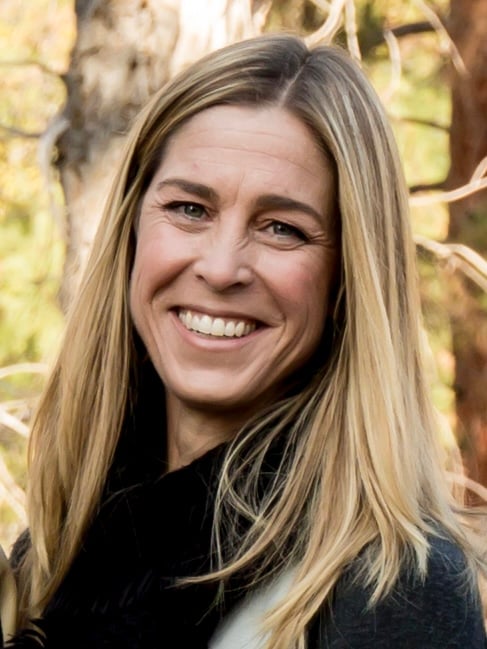



Intended learning outcomes
- Acquire a thorough understanding of emerging trends and innovations in action research and their potential impact on educational practices.
- Possess expert knowledge at MQF 7 level of the topic addressed in the thesis.
- Understand and become familiar with different types of textual and non-textual evidence used for the field of enquiry.
- Develop familiarity related to the ethical considerations and best practices for conducting action research in educational settings.
- Attain a comprehensive overview of how different educational theories and practices intersect and influence action research outcomes within the school and community context and in the field of enquiry.
- Summarise a gamut of information availed of from varied sources in a systematic way and its implementation and application in action research in education.
- Deliver a thesis in a structured, well-scoped and orderly way.
- Apply critical approaches and interpret ideas and data from primary and secondary sources using tools of analysis.
- Critically understand the contours of current research trends and theoretical frameworks relevant to action research in education and its important subtopics and thematics in relation to education
- Exhibit practical skills in collecting information from diverse primary and secondary sources and effectively apply it to address specific issues related to action research in education.
- Demonstrate competence in overseeing intricate, sustained research and its application on an initiative and cultivating innovative interpretive strategies.
- Critically evaluate and synthesise research findings to contribute in formulating evidence-based educational policies and practices, demonstrating a high level of expertise and autonomy in the research process
- Understand the theoretical issues influencing the chosen field of inquiry, discerning the strengths and weaknesses of various approaches and its implementation in the practical arena.
- Showcase the ability to independently take charge of a community-wide enterprise contributing to professional knowledge within the field.
Entry Requirements
Application Process
Submit initial Application
Complete the online application form with your personal information
Documentation Review
Submit required transcripts, certificates, and supporting documents
Assessment
Note: Not required by all colleges.
For colleges that include this step, your application will be evaluated against specific program requirements.
Interview
Note: Not all colleges require an interview.
Some colleges may invite selected candidates for an interview as part of their admissions process.
Decision
Receive an admission decision
Enrollment
Complete registration and prepare to begin your studies
.avif)










